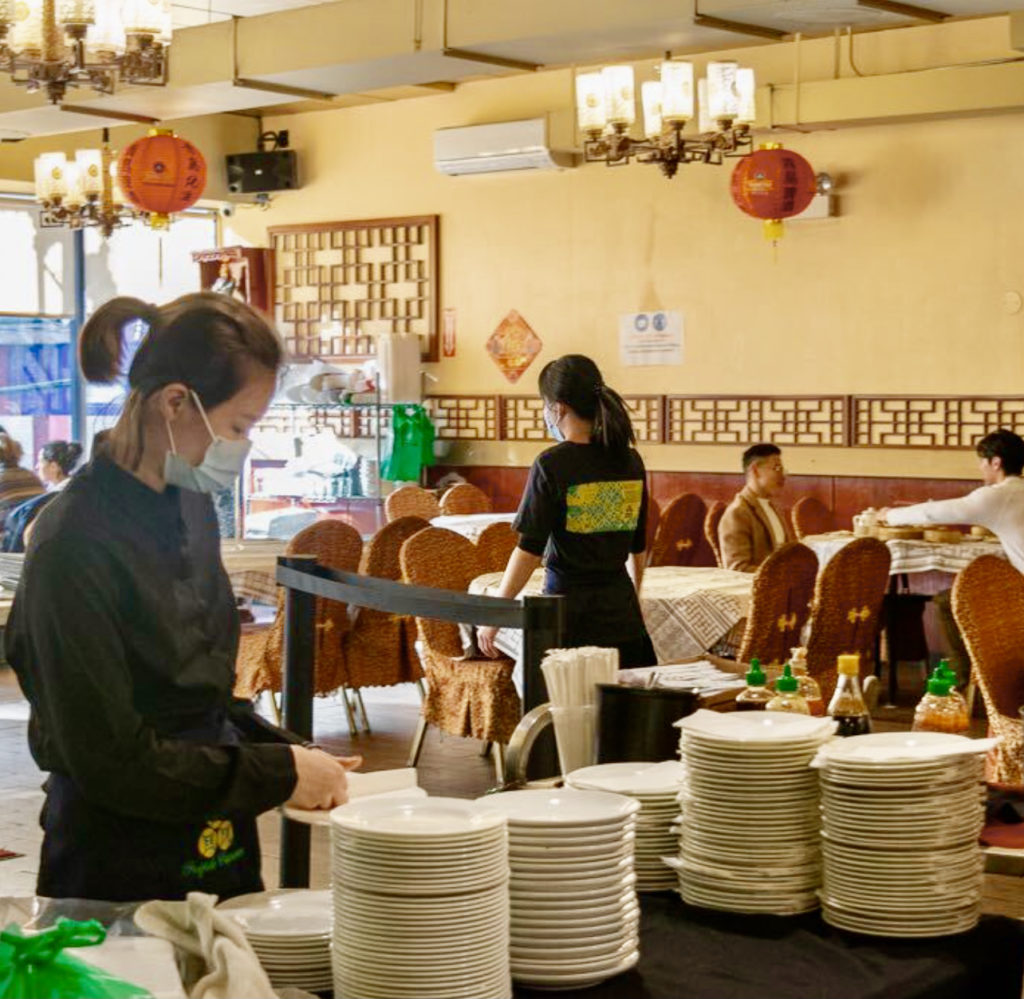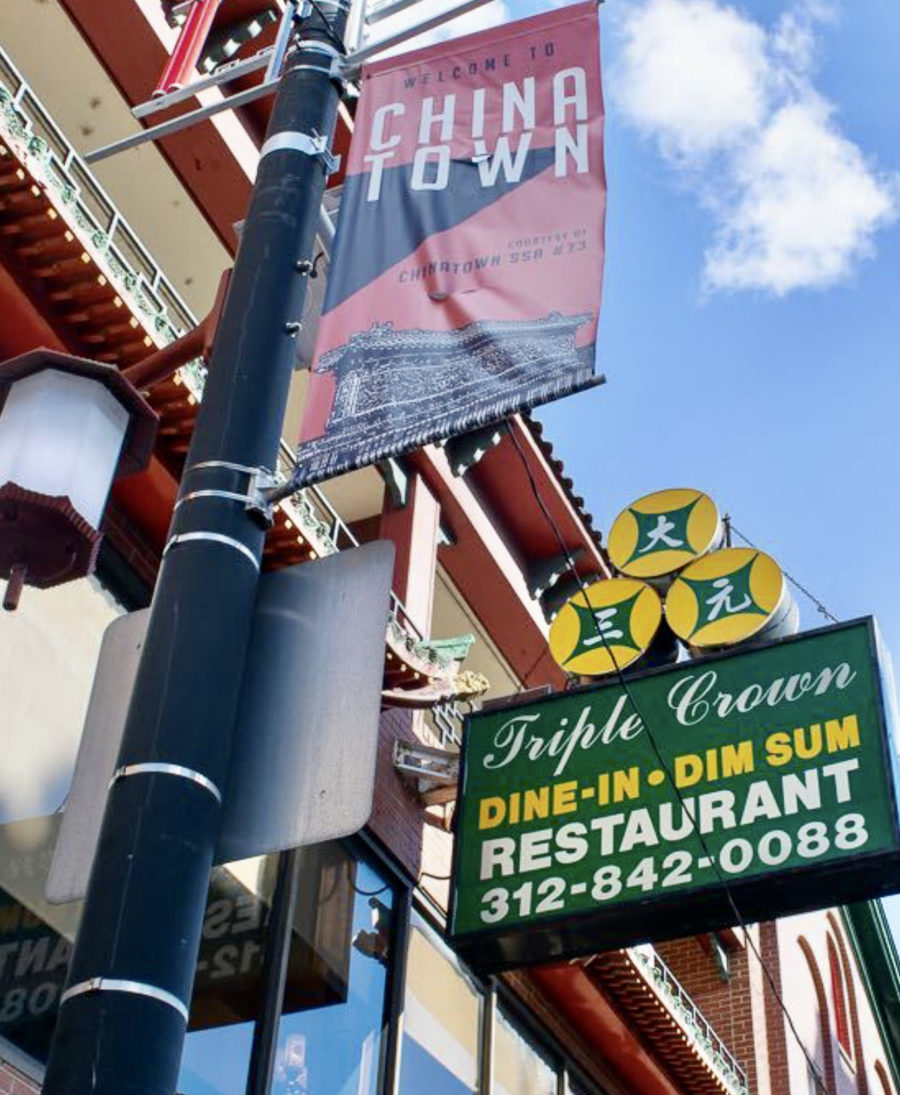As a kid, Spencer Ng worked many roles at Triple Crown, a Chinatown dim sum restaurant his mother founded in 1995. Busboy, waiter, dishwasher—anything related to the restaurant, he did it.
During the Great Recession in 2008, Ng’s mother lost more than half of the nine restaurants she owned in Chicagoland. Her mental health suffered and she fell into depression. She was never the same.
So Ng stepped up. Having gone away for school—becoming the first from his family to graduate college—he returned to Triple Crown, not as a busboy or waiter, but as the owner.
“Growing up, I thought my mom was invincible. But I didn’t know how vulnerable she was. I thought she was gonna come back,” Ng said.
His plan was to get this new location started and once his mother had recovered enough, she’d take over again, and he could live his life. Fourteen years later, and he was still running the beloved family-owned restaurant.
But then in March 2020, the pandemic was declared a national emergency. Looking back, Ng had no idea the extent of what was to come. “I remember March 15, when they announced the shutdown [of in-door dining], I was like, ‘We should be fine because it’ll be a good break,’” Ng said. “That break turned into a nightmare.”
It’s no secret that the restaurant business was hit hard by the pandemic. 385 food businesses closed in Chicago during the first year of the pandemic from April 2020 through April 2021, according to a UIC report about COVID’s impact on Chicago’s food industry.
Restaurants in Chicago’s Chinatown are no exception. Chinatown restaurants lost an estimated fifty to seventy percent in revenue from the pandemic, according to Stephy Liu, Operations Manager at the Chinatown Chamber of Commerce.
After Gov. J.B. Pritzker’s executive order to shut down in-person dining at all Illinois restaurants, Triple Crown’s revenue dropped seventy percent overnight. While other restaurants were pivoting to carry-out orders and outdoor dining, Ng struggled to do the same.
As the owner of a banquet style restaurant, Ng was faced with 200 seats that he couldn’t fill, and he couldn’t match that volume from carry-out and delivery orders. Also, Triple Crown’s location on the second floor by the Chinatown gate on Wentworth Ave meant there was nowhere to set up outdoor dining.

Many owners had to apply for the Restaurant Revitalization Fund from the Small Business Administration to stay open.
“We got some government assistance. Thank God,” Ng said. “If we didn’t, we wouldn’t be here today.”
Triple Crown was also facing eviction shortly after the shutdown began. Due to the loss in revenue, Ng couldn’t pay the full amount of rent to his landlord, which was around $20,000 per month at the time, according to the Tribune. To fight the eviction notice, Ng had to go to court and reach a settlement. He declined to share specifics about the case due to the non-disclosure agreement he signed with his landlord.
Kai Liang, owner of the Chinese restaurant MCCB in Chinatown Square, also struggled with the shutdown of indoor dining. Shifting to only delivery and carry-out orders, Liang had to use his savings for employee salaries at first. It was his loyal customers who sustained his business via outside orders. Even so, with the high rent in Chinatown Square, MCCB was barely breaking even.
The anti-Asian sentiments spurred by racist reactions to the pandemic and fueled by former President Trump’s rhetoric, labeling the virus as the “China Virus” and the “Kung Flu,” only added more stress.
Ng distinctly remembers an incident in January 2020, before the quarantine, when one of his Chinese employees asked him if she could wear a mask to prevent getting sick. He said yes. However, some customers at the restaurant, seeing her in a mask, assumed she had the virus.
“I remember vividly the table of ten just getting up and leaving. Just as they sat down, they freaked out,” Ng said.
There were also prank calls, such as people calling Triple Crown and asking for “a side of bat soup.” Amid these hateful calls, Ng remembers an employee who broke down crying. She quit afterwards.
Labor shortages have also plagued restaurants across Chicago. Jackson Chiu, the owner of 312 Fish Market, a sushi restaurant located in the 88 Market grocery store just outside of Chinatown, said the shortage of workers who can work for the pay restaurants can offer has caused what he calls a “labor war,” where restaurants are poaching other places’ workers.
If one place offers $4,000 a month, for example, another will offer $4,500 or $4,700. Chiu currently has around seven staff members, but ideally he’d like to have fifteen.
Ng noticed some of his workers leaving the restaurant industry for other jobs instead. He noted people want jobs that seem safer. As restaurant workers, they were technically “frontline” and were serving people every day. A study from earlier in the pandemic found that food workers, and line cooks in particular, were among the highest risk occupations for dying from COVID-19.
He’s seen previous employees now working at Costco and driving for Uber. While he’s grateful some have been around long enough for him to see their kids grow up and go to college, there are others that come and go.
“I got some new staff… and they’re kind of [doing] musical chairs,” Ng said. “Looking for the next best thing.”
Now, more than two years after the first wave of the pandemic, many Chinatown restaurants have still not completely recovered. Even since the vaccine mandates were dropped in late February, Triple Crown is operating at sixty percent capacity, with twenty-one tables instead of the original thirty-six. They used to have fourteen waitstaff, but now they only have five.
Ng said the toughest part about running a restaurant during the pandemic was the mental toll it took on him. During regular years, he could plan for May, June, July and August to be his busy months. But with the virus, there was no planning. Circumstances kept changing and new challenges kept revealing themselves.
The City’s vaccine mandates during the Omicron surge this past January caused Triple Crown’s business to drop by thirty percent. And for Ng’s workers, fewer dine-in customers meant fewer tips, making it harder for them to provide for their families.
And food costs have gone up, especially now with rising gas prices. Other fees have also gone up—their dumpster service fee recently rose from $700 to $900. With many ingredients sourced from Asia, transportation costs have become even pricier given recent delays in the supply chain.
For 312 Fish Market, Chiu has also grappled with increasing prices. He noticed that the price of fish went up and delivery companies are charging extra. The cost for 2.2 pounds of ikura, or salmon roe, doubled from $60 to $120. “And it’s been crazy because it keeps going up,” Chiu said. “There hasn’t really been a stable price.”
Despite all these challenges, Chinatown restaurants have done their best to adapt. For Liang, MCCB created their own online ordering platform a couple months into the pandemic. The site has its own loyalty program, so with each order customers get MCCB coins that they can redeem in future purchases. This approach means they aren’t charged as much commission from third-party delivery services like Chowbus or Uber Eats.
Chiu said 312 Fish Market has focused on collaborations and support from his friends in the restaurant industry, whether it be through social media promotions or other joint efforts. Chiu has an upcoming marketing collaboration with Jugrnaut, a local Chicago streetwear brand, to create merchandise for his restaurant.
Ng has also emphasized the importance of collaborating with others. He launched Triple Crown’s own beer at the beginning of the pandemic. Now he’s working on launching more products for customers to use at home, like chili crisp and dim sum that can be frozen for at home cooking.
He also hired local Chicago artists, Diosa and Chef Won Kim, to create Asian-inspired murals in the restaurant, including a dragon mural that takes up one of the restaurant’s interior walls. Ng wanted to support local Chicago artists who were also struggling to find work at the time.
For family- and immigrant-owned businesses, the restaurants represent more than just a business or a livelihood—they’re places to celebrate life. Ng had his wedding and has celebrated birthdays there. He’s seen families that used to come in with eight people, later coming in with thirty because their families grew over the years.
“For me, it’s family… Family is Triple Crown,” Ng said.
Elisa Xu is a graduate journalism student at Northwestern Medill specializing in magazine writing. This is her first piece for the Weekly.

